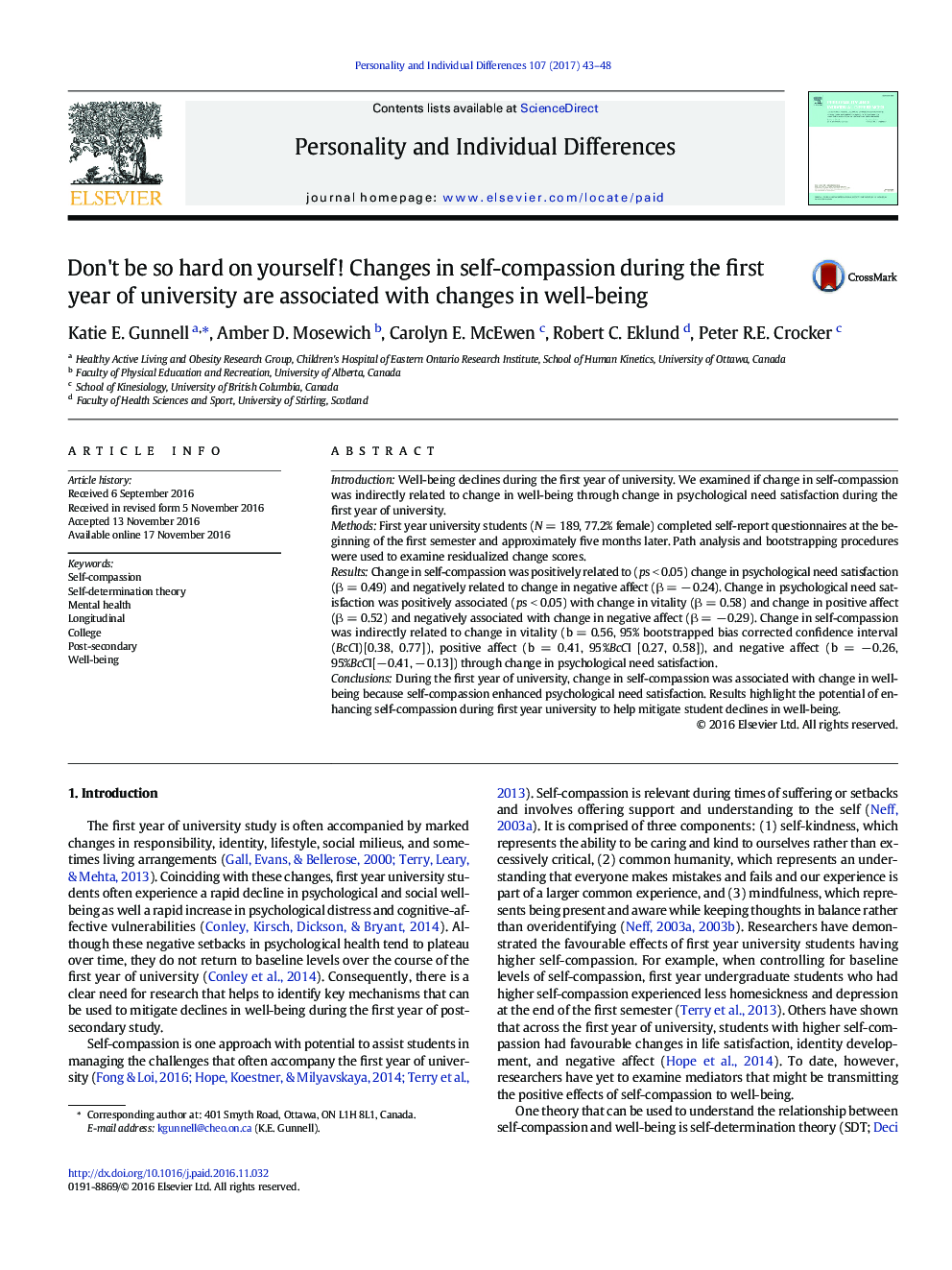| Article ID | Journal | Published Year | Pages | File Type |
|---|---|---|---|---|
| 5036137 | Personality and Individual Differences | 2017 | 6 Pages |
â¢First year university students were examined at two time points.â¢Change in self-compassion positively related to change in well-beingâ¢Change in psychological need satisfaction mediated the relationship.
IntroductionWell-being declines during the first year of university. We examined if change in self-compassion was indirectly related to change in well-being through change in psychological need satisfaction during the first year of university.MethodsFirst year university students (N = 189, 77.2% female) completed self-report questionnaires at the beginning of the first semester and approximately five months later. Path analysis and bootstrapping procedures were used to examine residualized change scores.ResultsChange in self-compassion was positively related to (ps < 0.05) change in psychological need satisfaction (β = 0.49) and negatively related to change in negative affect (β = â 0.24). Change in psychological need satisfaction was positively associated (ps < 0.05) with change in vitality (β = 0.58) and change in positive affect (β = 0.52) and negatively associated with change in negative affect (β = â 0.29). Change in self-compassion was indirectly related to change in vitality (b = 0.56, 95% bootstrapped bias corrected confidence interval (BcCI)[0.38, 0.77]), positive affect (b = 0.41, 95%BcCI [0.27, 0.58]), and negative affect (b = â 0.26, 95%BcCI[â 0.41, â 0.13]) through change in psychological need satisfaction.ConclusionsDuring the first year of university, change in self-compassion was associated with change in well-being because self-compassion enhanced psychological need satisfaction. Results highlight the potential of enhancing self-compassion during first year university to help mitigate student declines in well-being.
